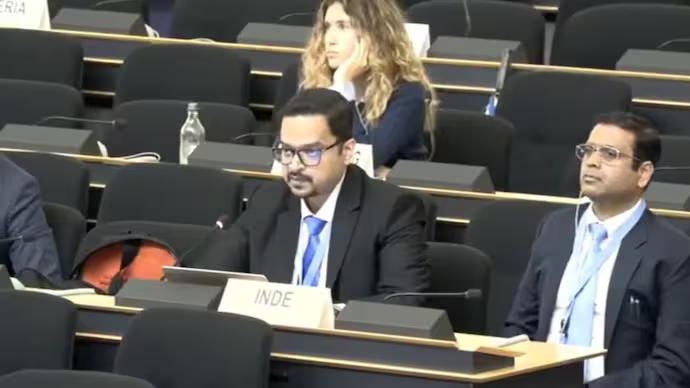India Rebukes Switzerland at UNHRC Over ‘Ill-Informed’ Remarks
- MGMMTeam

- Sep 11, 2025
- 3 min read
India has strongly responded to Switzerland at the United Nations Human Rights Council (UNHRC), rejecting the European nation’s remarks on India’s human rights record as “surprising, shallow, and ill-informed.” The rebuttal was delivered by Kshitij Tyagi, Counsellor at India’s Permanent Mission in Geneva, during the fifth meeting of the 60th session of the UNHRC.

Switzerland’s Remarks and Concerns
Switzerland, currently presiding over the UNHRC, had raised concerns regarding India’s treatment of minority communities and called for stronger measures to uphold freedom of expression and media freedom. These statements were interpreted by India as lacking factual understanding and context, prompting a firm response from New Delhi. Switzerland’s intervention was intended to highlight areas for improvement, but India perceived it as an oversimplification of complex domestic issues.
India’s Firm Rebuttal
In his address, Kshitij Tyagi emphasized that Switzerland, as the presiding nation of the UNHRC, should exercise caution when commenting on India’s internal affairs. He argued that the remarks misrepresented the situation on the ground and urged Switzerland to focus on its own challenges, including issues of racism, systemic discrimination, and xenophobia. Tyagi highlighted India’s democratic credentials, describing it as “the world’s largest, most diverse, and most vibrant democracy,” and offered assistance to Switzerland in addressing human rights concerns domestically, reflecting India’s constructive approach to international dialogue.
Criticism of Pakistan’s Role
India also addressed repeated claims by Pakistan in the UNHRC, accusing it of presenting “recycled falsehoods” and propagating misleading narratives. Tyagi characterized Pakistan as a “failed state” reliant on external aid and criticized its habit of raising allegations against India without factual grounding. The remarks underscored India’s position that external criticism should be balanced and informed, particularly in multilateral forums.
Broader Implications
This episode highlights India’s increasingly assertive stance in international human rights discussions. By challenging Switzerland’s remarks, India reinforced its commitment to sovereignty while emphasizing its constitutional protections and democratic principles. The exchange also illustrates the tensions that can arise when global actors comment on sensitive domestic issues and when nations defend their internal policies under international scrutiny.
India’s response demonstrates a strategic use of diplomacy, combining defense of its record with an appeal to the principle of mutual accountability. By offering assistance to Switzerland and pointing out domestic challenges abroad, India positions itself as both a defender of its sovereignty and a constructive participant in global human rights discourse.
The MGMM Outlook
India recently delivered a strong rebuttal to Switzerland at the United Nations Human Rights Council, dismissing its comments on India’s human rights record as “ill-informed” and lacking context. Switzerland had raised concerns about India’s treatment of minority communities and media freedom, but India saw these statements as oversimplified and not reflective of the on-ground reality. Kshitij Tyagi, Counsellor at India’s Permanent Mission in Geneva, emphasized India’s democratic credentials, highlighting the country as the world’s largest and most diverse democracy. He also urged Switzerland to address its own challenges, including racism and systemic discrimination, while maintaining that India remains committed to upholding human rights within its constitutional framework.
In addition, India criticized Pakistan’s repeated attempts to malign its record at international forums, calling such narratives “recycled falsehoods.” By addressing both Switzerland and Pakistan, India reinforced its stance that international criticism should be fair, fact-based, and context-aware. This assertive approach underscores India’s emphasis on sovereignty, accountability, and constructive diplomacy, reflecting its desire to engage in global human rights discourse as a responsible democratic nation.
(Sources: News18, Hindustan Times, India Today)




Comments